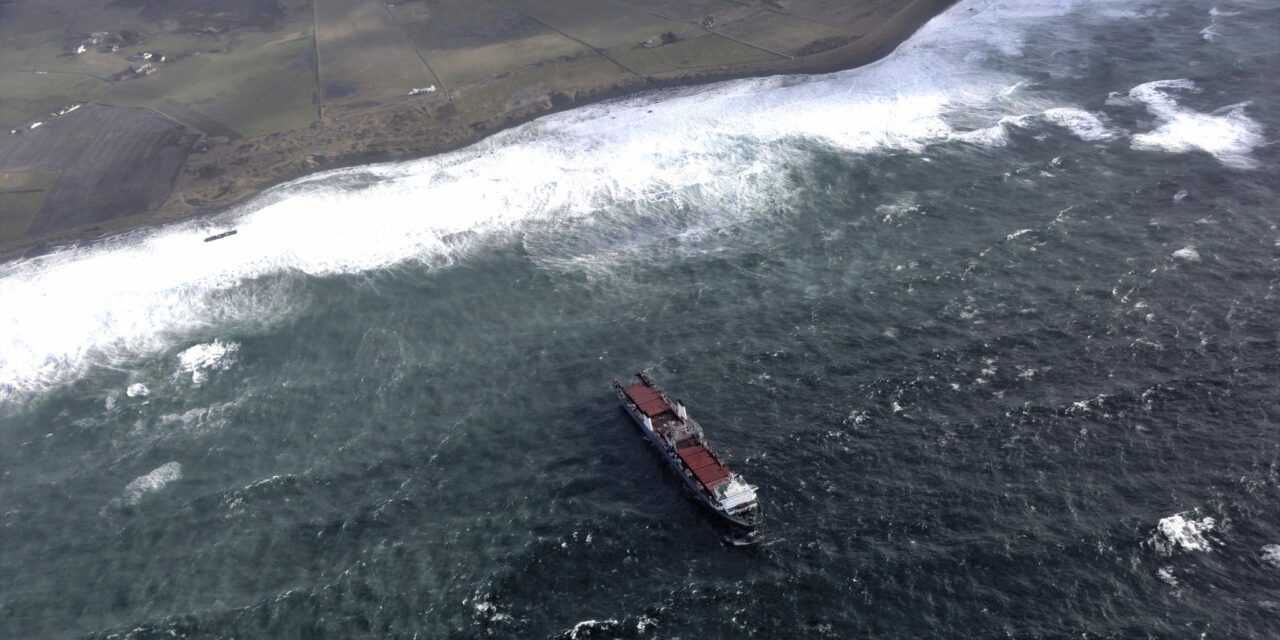A 54-year-old Norwegian shipowner has been sentenced to six months in prison for providing assistance in the controversial demolition export of the ship Eide Carrier (later renamed Tide Carrier, Harrier). The shipowner was charged with complicity in waste exports in violation of the Pollution Control Act.

The district court found that he had a central role in the assistance to get the ship off, and that the course of action was highly reprehensible, reports by Norway's crime agency Okokrim reveal.
According to prosecutor Maria Bache Dahl, the business leader had knowledge that the ship would be scrapped in Asia.
Waste exports are strictly regulated in Norwegian and international law, in order to prevent rich countries from sending their waste to poor countries that do not have satisfactory systems for handling the waste.
Scrapping of obsolete ships is a major international environmental problem. As a large maritime nation, it is important that the Norwegian authorities contribute to the fight against this problem, says Bache Dahl.
A timeline on the case of Harrier
- The NGO Shipbreaking Platform had been informed already during the summer of 2015 that the ship was sold for scrap, after having been laid up for many years on the Norwegian west coast. Therefore, it contacted the owning company, Eide Group, who denied they would scrap it.
- On 22 February 2017, the vessel attempted to leave Norway under a new name, flag and registered owner. Now called "Tide Carrier" (after altering the first letter), the ship had swapped its flag to that of Comoros and was registered under an anonymous St. Kitts and Nevis based post-box company, Julia Shipping.
- Only hours after its departure, the engine stopped. Despite the ship’s deteriorating condition and bad weather conditions, the vessel’s new captain did not call for help. The ship was drifting towards one of Norway’s most renowned beaches and the Norwegian coastguards were forced to trigger a salvage operation to avoid the risk of oil spill and grounding. The rescue operation included the emergency evacuation of 5 crew members – one of which suffered from a broken shoulder – and the deployment of two tugboats to bring the ship to safety.
- At the request of the owners, Julia Shipping Inc., the ship was laid up in Gismarvik. Its name was re-changed to HARRIER. The flag also changed again, from Comoros to Palau. According to the Comoros registry, which was contacted by the Norwegian authorities, the vessel had in fact never been registered under the Comoros flag.
- Following reports by the NGOs, the Norwegian Environment Agency boarded the laid-up vessel, where they found evidence that the HARRIER was indeed under a “break up voyage” insurance from Norway to Gadani, Pakistan.
- On 5 April 2017, Norwegian environmental authorities arrested the ship and pressed charges against the owners for having attempted to illegally export hazardous waste.
- In October 2017, Norwegian Maritime Authority charged the company with NOK 7 million for violating the Pollution and Criminal Code.
- Without having paid the fees for lay-up in Gismarvik, the HARRIER was moved to be anchored off Farsund. There, two crew members remained confined onboard the ship for more than one year. With the help of Norsk Gjennvinning, cash buyer Wirana finally obtained the approval from both Norwegian and Turkish authorities to scrap the ship in Aliaga, Turkey, where it arrived in August 2018 – three years after its initial sale for breaking. Before leaving Norway, Wirana was forced to pay GMC in Gismarvik EUR 700.000 for lay-up costs that had still not been settled.
- On its way to Aliaga, the HARRIER caused an oil spill in the Izmir region. Turkish authorities fined owners with USD 300.000 for the spill and also requested them to pay for the clean-up operation, estimated at 4,5 mill USD. Until the fine and clean-up costs are paid, the recycling of the ship is at halt. In the meantime, the recycling yard in Aliaga, SOK, is stuck with a vessel it has already paid Wirana for and cannot start recycling – and Julia Shipping Inc. has disappeared.
Source: Safety4Sea